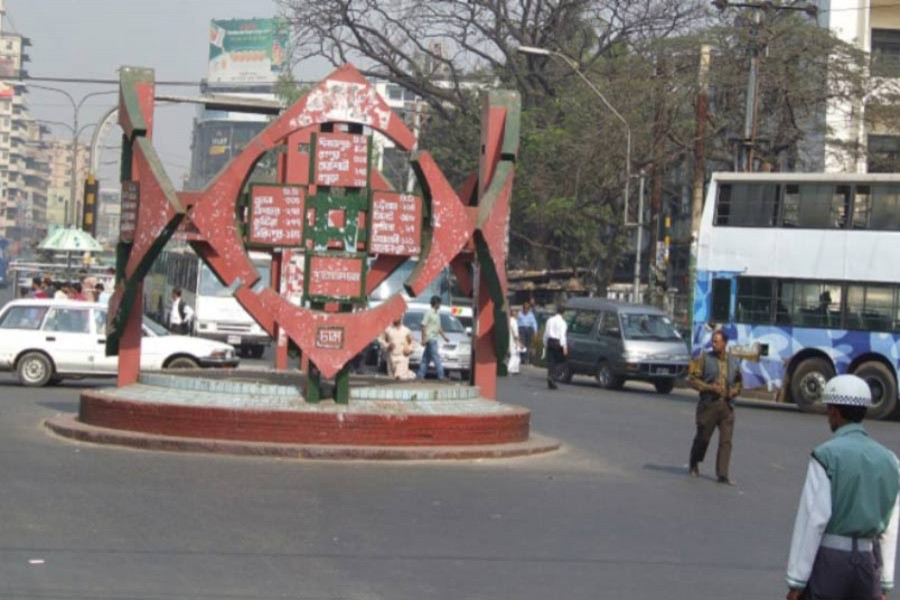I have a bitter experience during my recent visit to Bangladesh, particularly in Dhaka, capital of Bangladesh which is a crowded city while traffic is chaotic indeed. Dhaka turned out to be the biggest city in Bangladesh while it stands out as eight largest city in the world. Proper planning remained absent in building the city from the 17th Century Mughal period until it was under Pakistan. Lal Bagh Fort is reminiscent of the rule of Mughal. During Mughal period Dacca was the capital of Bengal. Self-imposed Field Marshal Ayub Khan, then President of Pakistan, took an initiative to build Dhaka as the second capital but did not complete. United States architect Louis Kahn was assigned to build the second capital who built the Jatiya Sangsad Bhaban in collaboration with his Yale student Mr Mazharul Islam. Jatiya Sangsad Bhaban is a masterpiece of architecture of Louis Kahn indeed. There is hardly any need to preserve historical places in Bangladesh to encourage tourists to visit the country.
Traffic congestion in the city could be tackled if proper planning in conducting traffic is done. City roads could be divided into three phases. Buses should be allowed to ply in the first row while cars, auto rickshaws in the second row and rickshaws should be allowed in the third row. There should not be any deviation. Whoever violates the rule, the owner of the transport should be penalised handsomely. It has come to notice there are traffic light posts at different points in the city but traffic lights are not working. Traffic is controlled by police whereas traffic light seems to be in operation in Cantonment area. Drivers are meticulously following traffic light while passing through the cantonment area. Therefore, two systems exist in Dhaka city. It is, therefore, suggested to restore traffic lights in the city. In case of violation of traffic lights in the city, stringent penalty should be imposed on the driver. If necessary, driver licences should be seized. There is a need to strictly follow rule and regulations while granting driver licences. No amount of bribery should be allowed in granting the driver license. Test of the driver should be conducted by a panel of three persons at least.
Recently at a conference on July 20 in London of Bangladesh diplomats posted in European countries, Prime Minister Sheikh Hasina called upon them to invite foreign investments into the country and increase trade as well while attaching importance to economic diplomacy. Being a Least Developed country, which is making progress to become a developing county by 2024, Bangladesh depends on foreign investments for economic development. Under the existing anarchic traffic system, a foreign investor spends two hours on the road to reach the Export Promotion Bureau or Board of Investment at Motijhel to find regulation for investment in the country. The impression he carries back will not be congenial for investment. Water pollution in Dhaka city makes live miserable. WASA is subjected to complaint by the public for supplying polluted water. In May the WASA authority admitted that its water was polluted in 57 areas because of broken down supply lines. A recent study reveals WASA's supply line might be a source of microbiological agents. While travelling from Khilgaon to Cantonment area via Gulshan we noticed a pool of water known as Hateerjheel Lake which passed through Rampura to Gulshan but water seems to be contaminated. It is understood that a plan is being prepared with the help of an Australian firm to remove the bad smell from the lake. There is a pressing need to purify water and make Hateerjheel lake a tourist resort. Another tourist attraction of Dhaka is horse-driven carriages from the Gulshan area to Bangla Bazar and Sadarghat in Old Dhaka.
As of now Bangladesh stands behind India in terms of foreign direct investment (FDI). According to a United Nations conference on trade and investment, foreign direct investment stood at $3.61 billion in 2018. Both Japan and China are investing in the country on a large scale but corruption in the country has caused further obstacles for investment. According to the Transparency International, Bangladesh has been placed at the high level of corruption in all sectors posing a significant challenge to foreign investments in the country. Possibly only China and Japan are major investors in Bangladesh. It is reported that Sojitz of Japan is planning to invest in a private port and an industrial park at Mirsarai in the port city of Chattogram. As a matter of fact, Japan has been investing in Bangladesh since it was part of Pakistan.
The communication network plays a vital role in the business sector. If that system is disrupted, business will be hampered. It is heartening to note that the present administration in Bangladesh has undertaken a number of projects to improve the communication system in the country. The government has undertaken construction of metro rail, bridges and tunnels, apart from developing special economic zones across the country. No amount of diplomacy will work unless corruption is stopped and regulation and procedure for investment is streamlined. Therefore, there is a need for positive action to stop corruption at all levels, including the security sector, apart from simplifying regulation for investment.
Mohammad Amjad Hossain, retired diplomat from Bangladesh and former President of the Toastmaster International Club of America, writes from Virginia.
amjad.21@gmail.com


